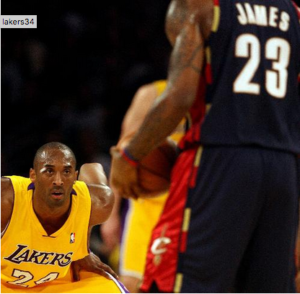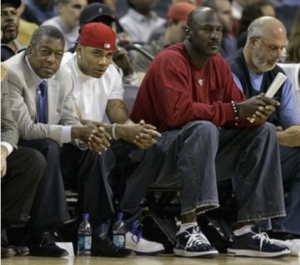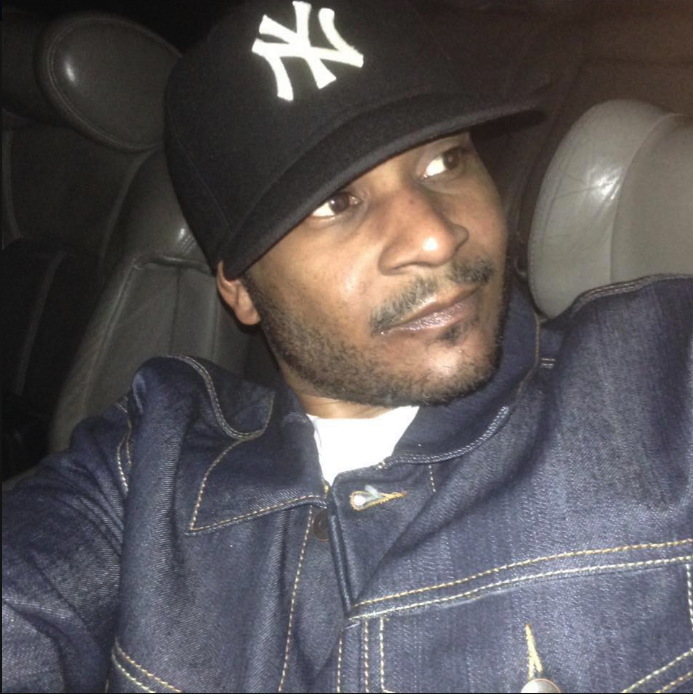
Warmed-over Myths of So-Called Black Wealth Newsflash from CNBC's NEWBO's:
If you're black and can't rap or play ball, forget about making it in America…
By Alfred Edmond, Jr. – February 27, 2009
BLACK ENTERPRISE Warmed-over Myths of Black Wealth
It was 2009 and a black man became President of the United States of America. So why is CNBC still programming like it’s 1989 and the only way black Americans can hope to achieve wealth is via a sports-entertainment contract or a record deal?
CNBC’s NEWBO's: The Rise of America’s New Black Over-class, a special which aired last night, is wrong on so many levels. But its biggest disservice is that it is based on two stereotypical myths about black wealth that are just not supported by the facts:
The best–and even the only–avenue to real wealth for black Americans are through sports and entertainment (Very Stereo-typical).
The majority of the “NEWBO's” featured on the program hit, run and jump for a living (the NFL’s Terrell Owens, Major League  Baseball’s Torii Hunter and the NBA’s LeBron James) or perform on stage and recordings (Cash Money Records co-partner and rapper Bryan “Baby” Williams, contemporary gospel artist Kirk Franklin).
Baseball’s Torii Hunter and the NBA’s LeBron James) or perform on stage and recordings (Cash Money Records co-partner and rapper Bryan “Baby” Williams, contemporary gospel artist Kirk Franklin).
An exception is RLJ Development CEO and billionaire Robert L. Johnson—the only subject featured who can make a credible claim to being “uber-wealthy.” Of course, he made his fortune by creating and marketing a cable channel featuring black people singing, dancing and rapping. (Oh, and unless you’re Oprah Winfrey, black women need not apply—apparently there are no female NEWBO's.)
Black athletes, and entertainers are among the richest black Americans and among the nation’s wealthiest Americans. The problem with this is that NEWBO's primarily focuses on the gross income of the subjects. However, the real measure of wealth is not gross income, but net worth—a person’s assets minus their liabilities. (Black Enterprise readers are familiar with the net worth tables accompanying our monthly Wealth for Life profiles.)
Lee Hawkins, the host/interviewer of NEWBO's and a Wall Street Journal reporter who’s authored a forthcoming book about this group, goes to great pains to hype the fact that “black athletes in the NFL, NBA and Major League Baseball and the 20 highest paid hip-hop entrepreneurs” earn a combined total of $4.5 billion dollars.
He quickly moves past the fact that this is the combined income of more than 1,000 people, and never mentions that the combined net worth—the real wealth—of this group would be a small fraction of that total. Athletes and entertainers earn good money—but they don’t even come close to being uber-wealthy, the term Hawkins repeatedly uses without ever defining what he actually means when he says it.
Aren’t these the stereotypes and false messages we’ve spent much of the past 40 years trying to deprogram from American thinking, and black American thinking in particular? In the age of Obama, why are we still telling each other—and worse, our children—that our best chance to become wealthy in America is through sports and entertainment? Especially when anyone who understands wealth and the American economy, as CNBC and Hawkins surely do, knows that is not true?
Ken Fisher’s book The Ten Roads to Riches: The Way The Wealthy Got There (And How You Can Too!), correctly identifies sports and entertainment as the most difficult way to achieve serious wealth, with the longest odds. The primary reasons to pursue a career in sports or entertainment is because you are good at it, and you like to do it—not because you have more than a prayer of ending up with Bob Johnson money.
 There are no athletes or entertainers on the most recent Forbes 400 list of the wealthiest Americans. (You needed a net worth of at least $1.3 billion to make the most recent list. Their combined net worth? $1.57 trillion.)
There are no athletes or entertainers on the most recent Forbes 400 list of the wealthiest Americans. (You needed a net worth of at least $1.3 billion to make the most recent list. Their combined net worth? $1.57 trillion.)
I’ve personally come to suspect that black people are intentionally steered toward sports, and entertainment to keep us away from the real sources of wealth in America.
Forget the fact that, as a television interviewer, Hawkins is a great newspaper journalist. Forget that there is nothing remotely new about a tiny percentage of black people from poor backgrounds suddenly achieving fame and fortune in sports and entertainment, often fulfilling the role of financial saviors for entire extended families.
Forget the fact that there is nothing unusual about most of these NEWBO's being under the age of 40: sports and entertainment are youth-oriented industries—it’s extremely rare for a recording artist or athlete to maintain his or her earning power past the age of 35. (By the way, Bob Johnson is 73.)
And don’t even get me started on the poor taste, if not outright insensitivity, of Hawkins focusing—as millions of Americans struggle through a devastating economic crisis—on how his subjects spend their money. (How many black kids could be put through college on the half-million dollars Cash Money’s Williams told Hawkins that his grill is worth? Williams has the right to spend his money as he pleases. But what’s the point of Hawkins celebrating it? Why is it that when wealthy whites are interviewed, the focus is on how they made their money, but wealthy blacks are usually stereo-typically profiled as profligate spenders? When did CNBC start airing MTV Cribs?)
To be fair, to really identify the wealthiest black Americans would take a lot of digging—after all, truly wealthy black people, (including many of the corporate CEOs, Wall Street executives and owners of Black Enterprise 100s companies featured in Black Enterprise) are not eager to draw attention to their wealth. They’re quite happy to let Baby Williams and Terrell Owens get all the attention—and aggravation—that comes when people realize you’re earning big money. But isn’t that the kind of thorough, hard-hitting, uncompromising financial reporting CNBC is supposed to be known for?
NEWBO's is of the kind of check-the-box, toss-the-reporting-standards programming that black Americans have come to expect—and too often, regret—starting around the King Holiday in January through the month of February. To me, it feels like the show was created to serve two purposes: as a barely disguised infomercial for Hawkins’ book and a quick and easy way to for CNBC to offer programming for Black History Month (whew—made it with two days to spare!).
Sorry CNBC—that’s not good enough. And no using the flack you’re going to get, and deservedly so, for lowering the CNBC bar with NEWBO's as an excuse to do no programming about black people at all.
Courtesy of: Alfred A. Edmond Jr. as the editor-in-chief of: BlackEnterprise.com
__________________
Quote of the day: “If the enemy is not doing anything against you, you are not doing anything”
– Ahmed Sékou Touré

Founder of Lazarus Enterprises Group and head of strategy at Apex Media 365, also Apex Marketing Pro, a leading digital marketing firm.
We developed a system to help small businesses, and local companies connect with potential clients, and customers who truly need their goods or services, which will in-turn increase the company’s net worth with a lot more ease, and control.
We do this utilizing Gorilla marketing tactics, and technology to measure a return on investment.
To schedule a free 30-minute Marketing Tune-up, call us: 1-888-256-4202
